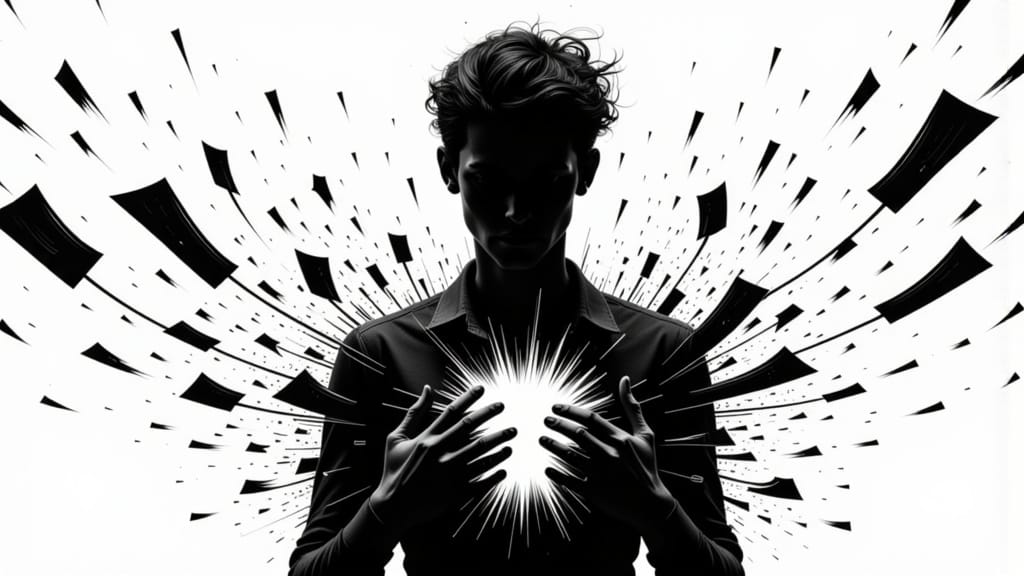 |
| welcome one, welcome all to the expanded insides; a place where fuzzy logic meets reflection and themes intertwine to create content without any true purpose except for mimicking a thesis on life and beyond |
| EX-PAN-DED |
| if you haven't yet, go visit the main page: the presented themes, more or less in order:
|
| RECALLS, EBBS & NADIRS |
A TA[I]LE :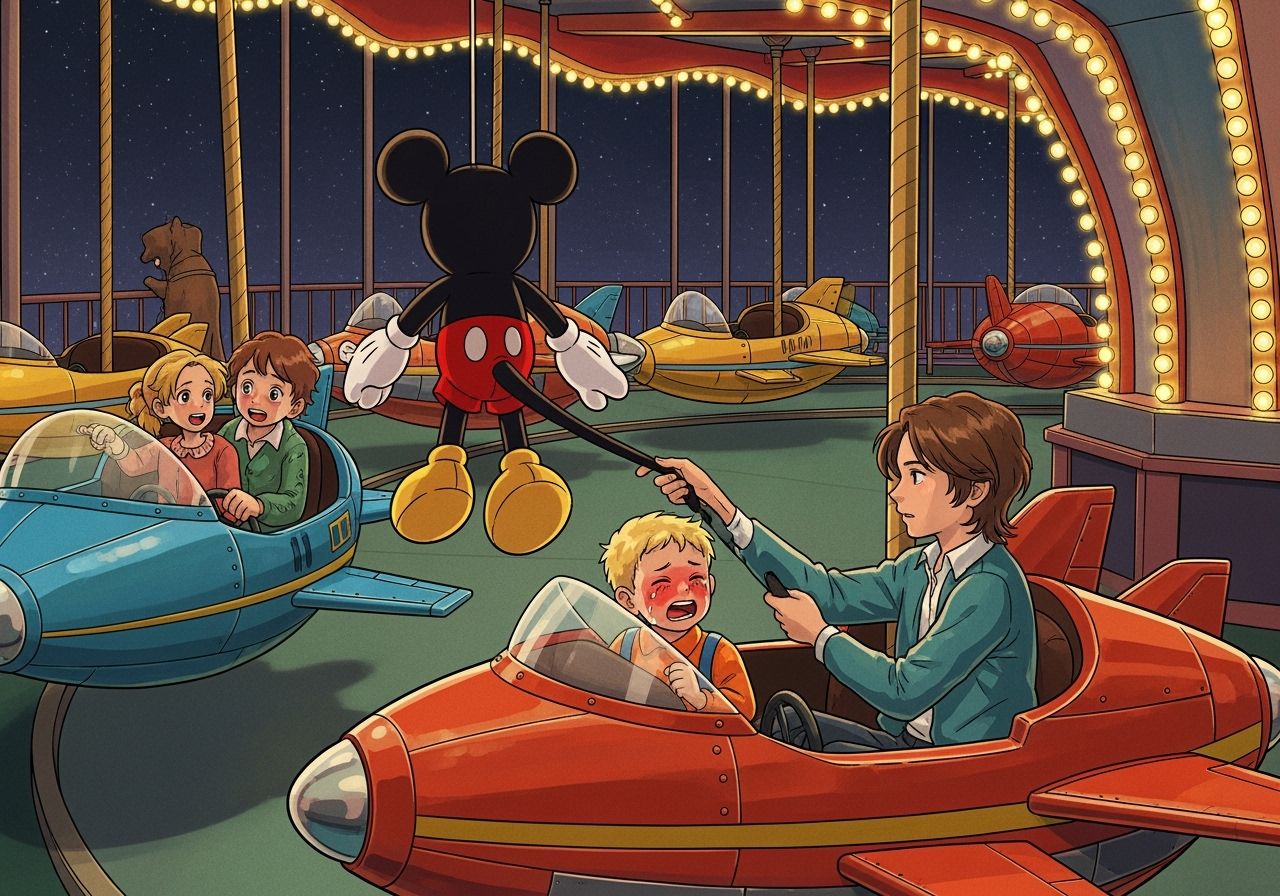 One of my earliest memories is of a merry-go-round in France, with two-seater spaceships that rose and fell. At the highest point, you could see a large Mickey Mouse plush hanging from the ceiling, its tail attached by velcro. If you grabbed it, you won a prize. After several failed attempts, I finally seized the tail and pulled it off, ecstatic. But the older kid sitting next to me snatched it from my hands and held it like he'd won it. I held back my tears, did nothing, and only when the ride ended did I run to my mother, wailing. MAMMEL-DELA EFFECT : 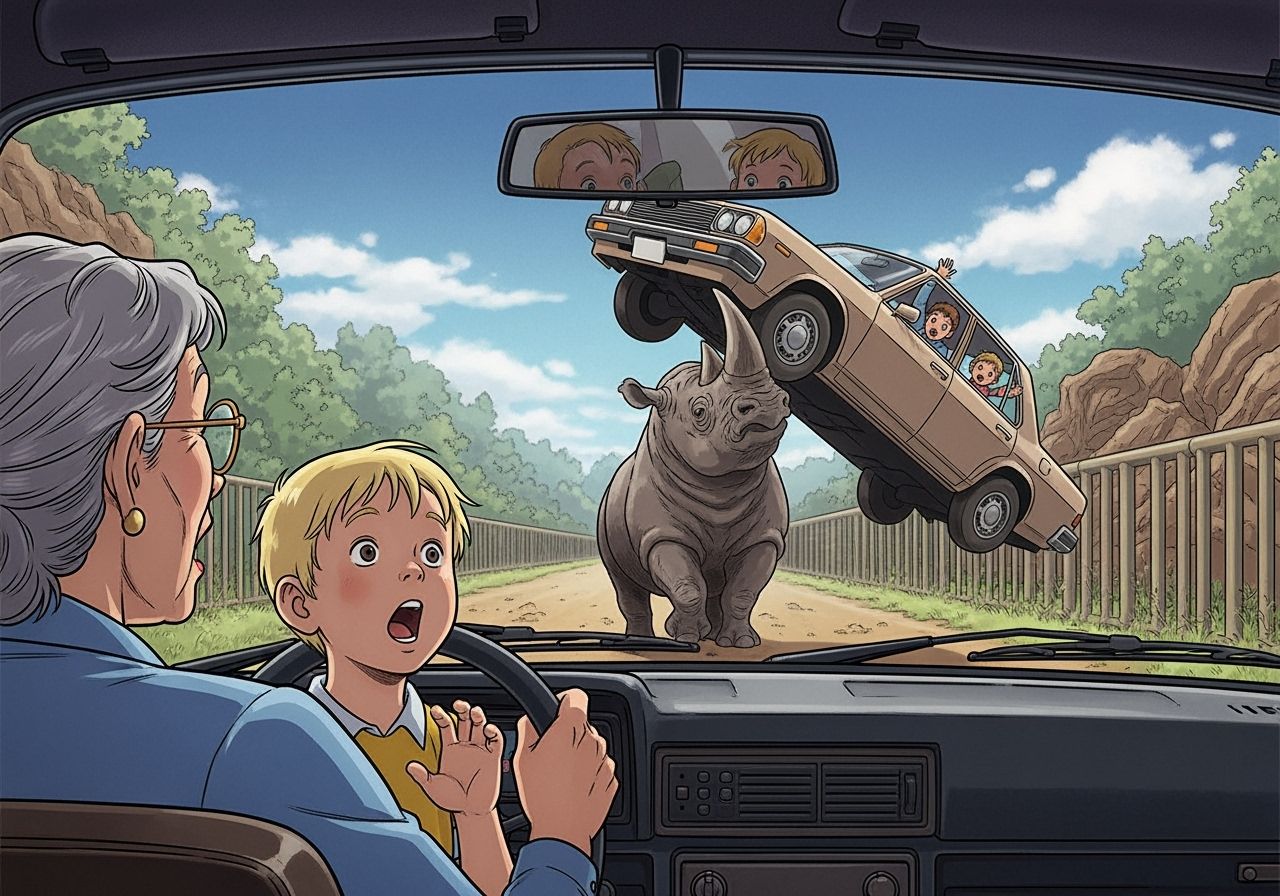 My maternal grandmother and I shared a memory of a drive-through zoo where a rhinoceros lifted up a car with its horn. The vehicle's passengers were frantic and it scared both of us. The fantastic thing is that this probably never happened, yet I believe I confirmed the details with her some 10 years later. Now, I'm unsure if I even asked her, and unfortunately, I can no longer find out. MORE THAN MEETS THE I :  Me, in kindergarden and one of the few stored recollections I have of this era. I remember having brought my Transformer in that day. I loved that toy. It transformed from a fighter jet into a robot. I think part of me was also proud of having it. A kid there took it from me and didn't want to return it. I didn't say anything. I didn't even cry. I kept it inside, swallowed my grief. BAN-NER :  In second grade, I asked my teacher if I could make a banner for my dad - for his birthday or a promotion. Excited to use the computer and the line printer's continuous paper, I got to work. Later, she asked what I was doing and said she'd never given me permission. I felt shocked and betrayed. She was scolding me for something I believed I had the approval to do, and that had felt deeply important. NARK ATTACK :  Now here's a lesson my mom taught me that I will never forget: On a summer camp trip to an amusement park, our bus driver saw litter thrown from the window but not the culprit. Upon arrival, the counsellor announced no one would leave the bus until the person came forward. I raised my hand and pointed out the boy responsible. He was reprimanded than still allowed in the park. I proudly told my mother what had happened when I got home. Instead of praise, she scorned that "snitching" was not a good thing. I was shocked she disapproved. This made me reconsider and I've never told on anyone since. MADBALLS : 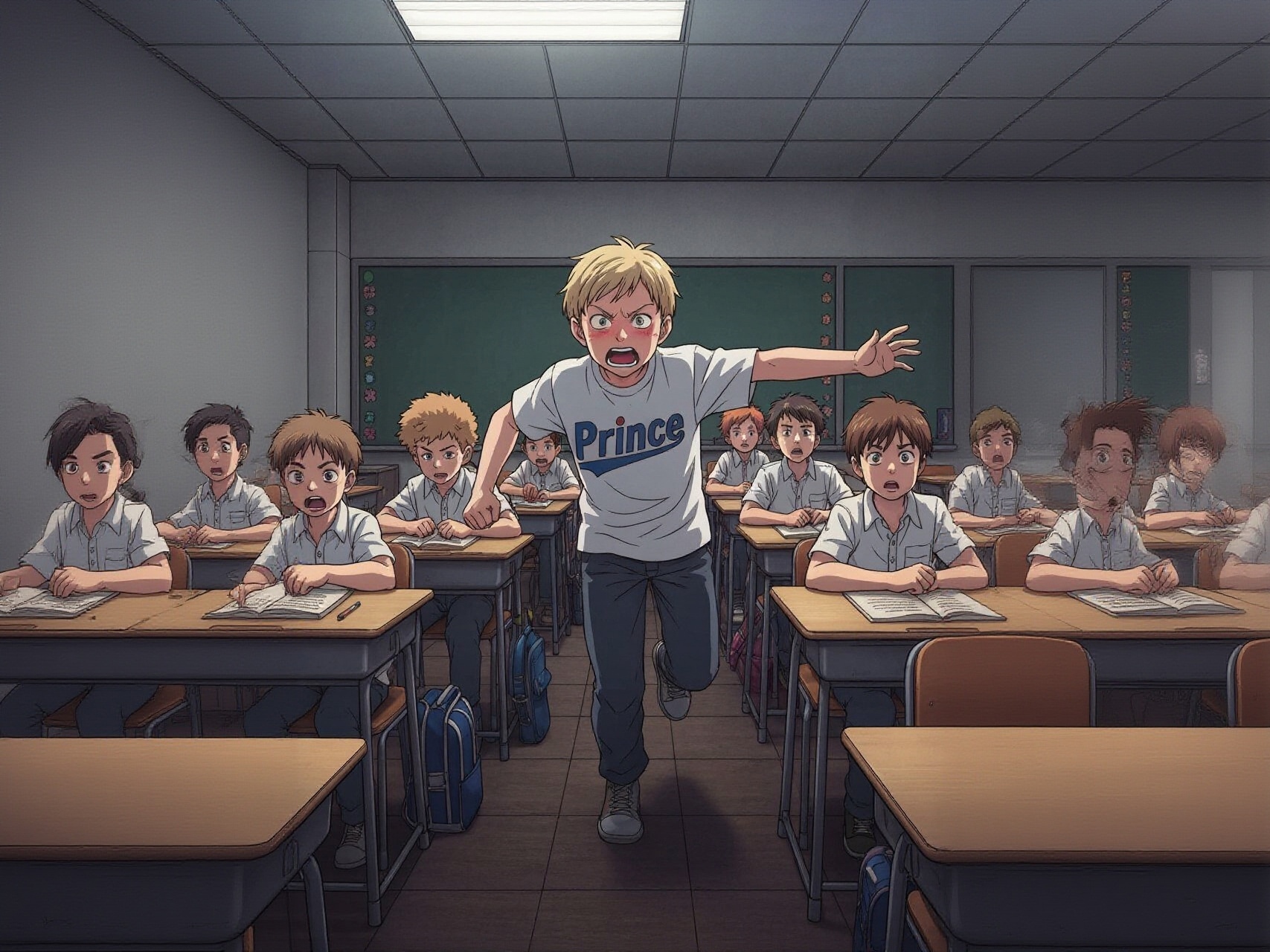 In the 4th grade, I often had fits of rage. Once, in class, my Madballs Oculus Orbus figurine was stolen from my desk. Furious, I stood up, paced the aisles and accused nearly every boy, speculating on their motives. My outburst completely disrupted class, so the teacher locked me in another room. There, I continued raging by throwing chairs and flipping desks. CALLING ALL CLOWNS : 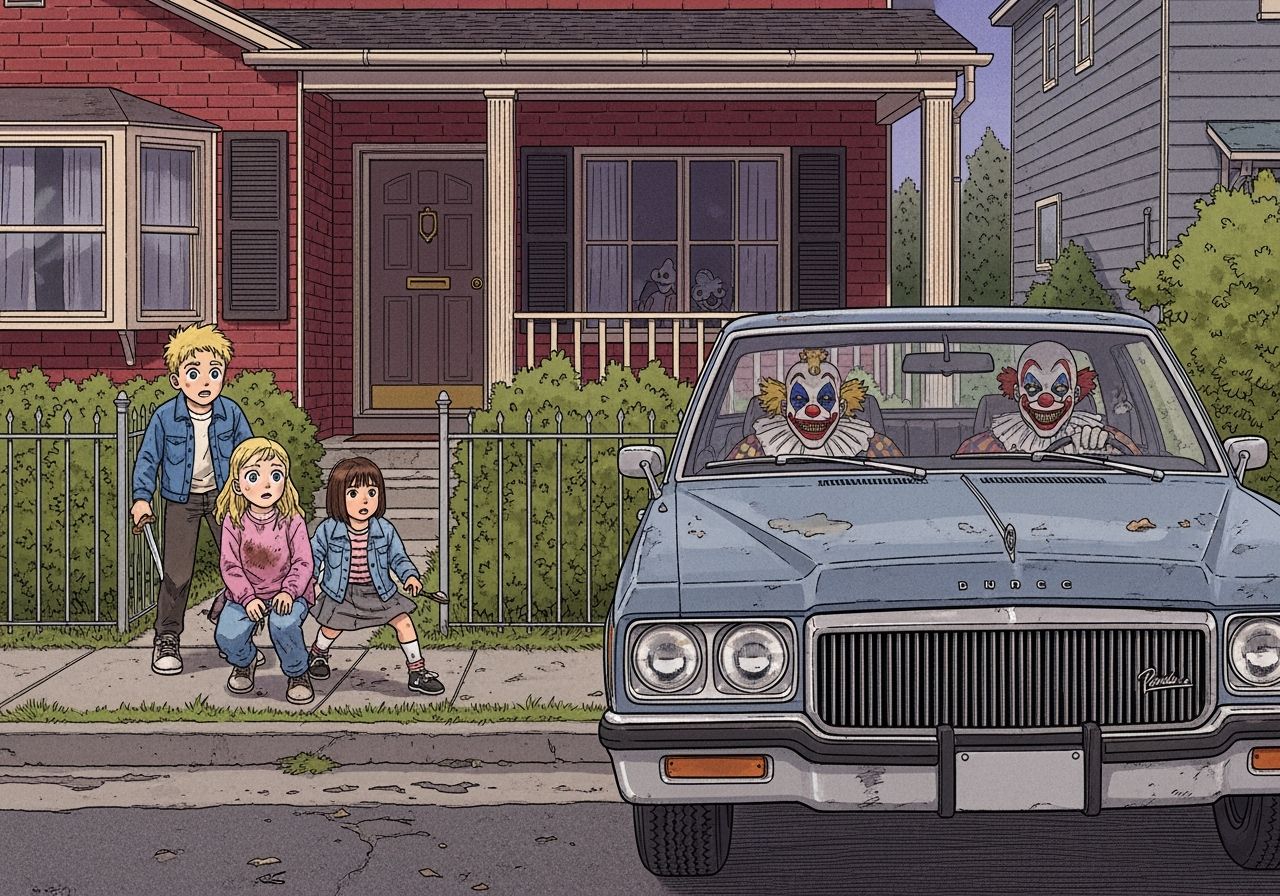 Home alone with my sisters, we noticed a car with two men in clown makeup parked right in front of our house. They sat watching the street, making us anxious. When I called the cops, they refused to help since the men hadn't trespassed. Taking matters into our own hands, we hid in the backyard bushes to surveil them, and I armed myself with a kitchen knife. Eventually they drove away but this incident cemented my lasting distrust of the police, affirming the belief that they are never there when you need them and always there when you don't. SUPERFLY : 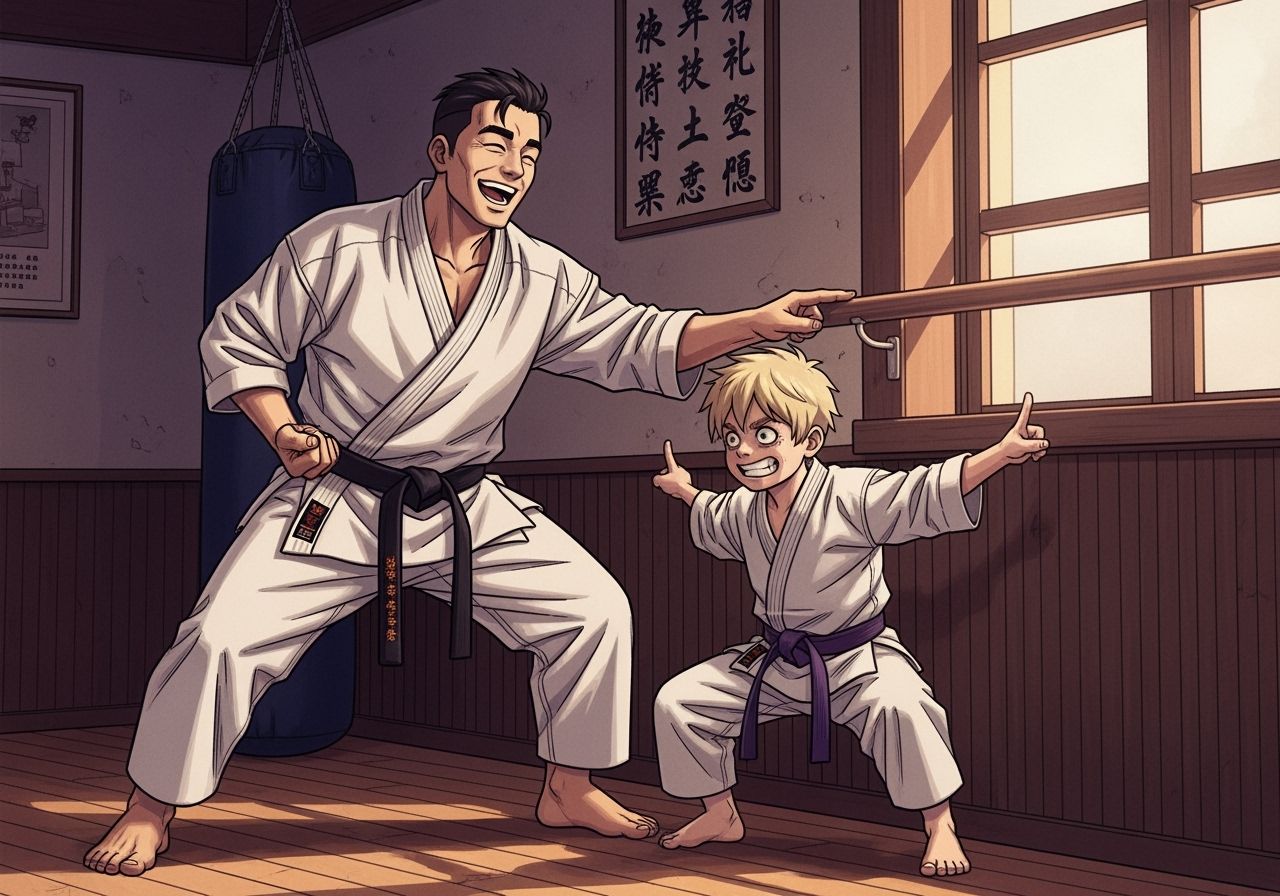 At age 11, my parents enrolled me in karate to help with my anger. I enjoyed it, though our instructor was often lazy, frequently substituting long meditations for actual training. He also rushed us through belt promotions to collect more exam fees. Sometimes I'd stay late at the studio and entertain my sensei by touching an electrical socket and pretending to be someone else, then "reverting back" at the next one. This made him laugh, and he nicknamed me "Superfly", which he soon shortened to "SF". That nickname has stayed with me ever since. (C8H8)n MAN : 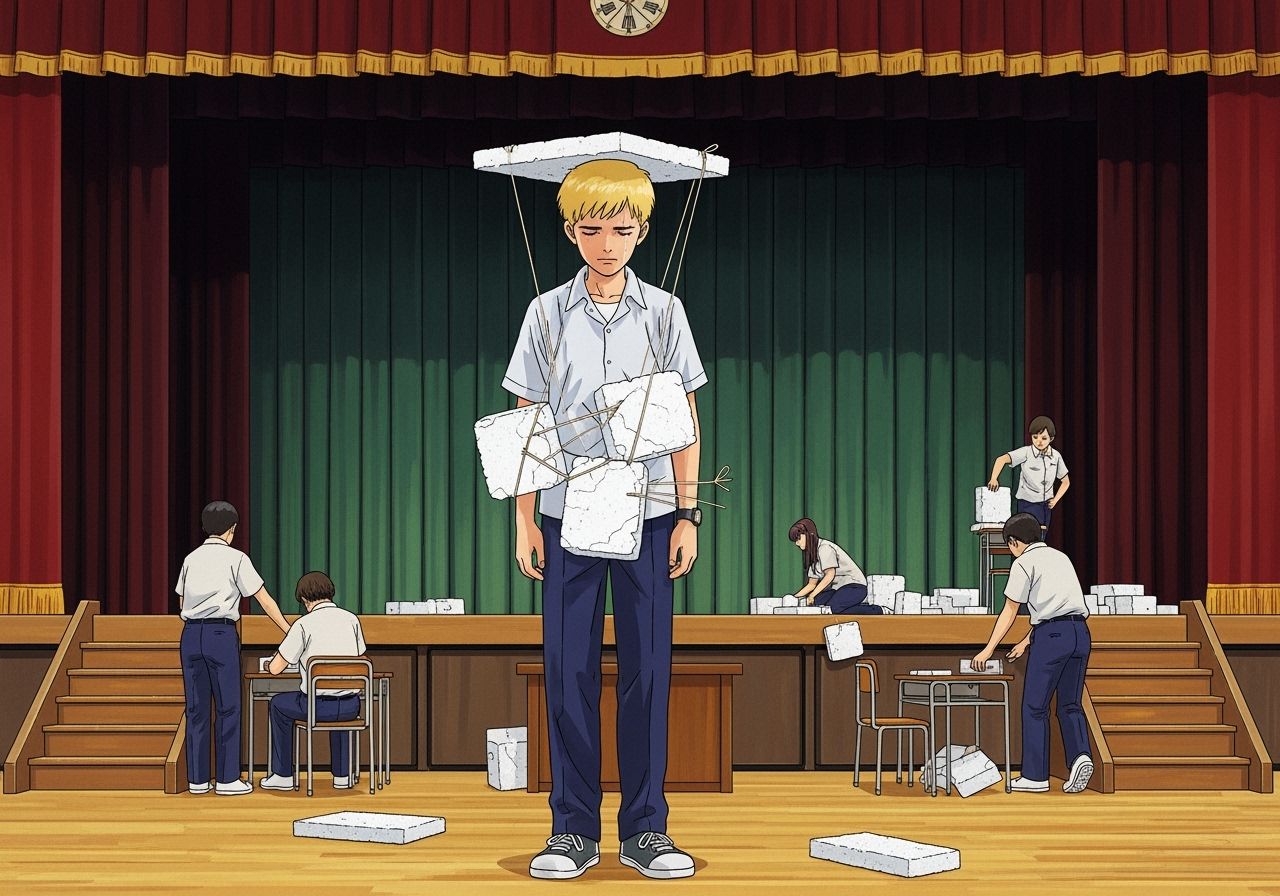 In junior high school, I took part in a drama course. The teacher had put up this pedantic play on environmental protection. I was to act as a sort of swamp monster of styrofoam, even growl at the public and show my claws. The play was poorly written. My lines were dull and embarrassing. Even worse was my costume. It was composed of a few flat pieces of polystyrene held to my body by string. I was ashamed to perform this character and have people associate it with me. On the day of the play, I pretended to be sick. I never even found out how the play had turned out, I gave the entire production a wide berth. HALLWAY PASS : 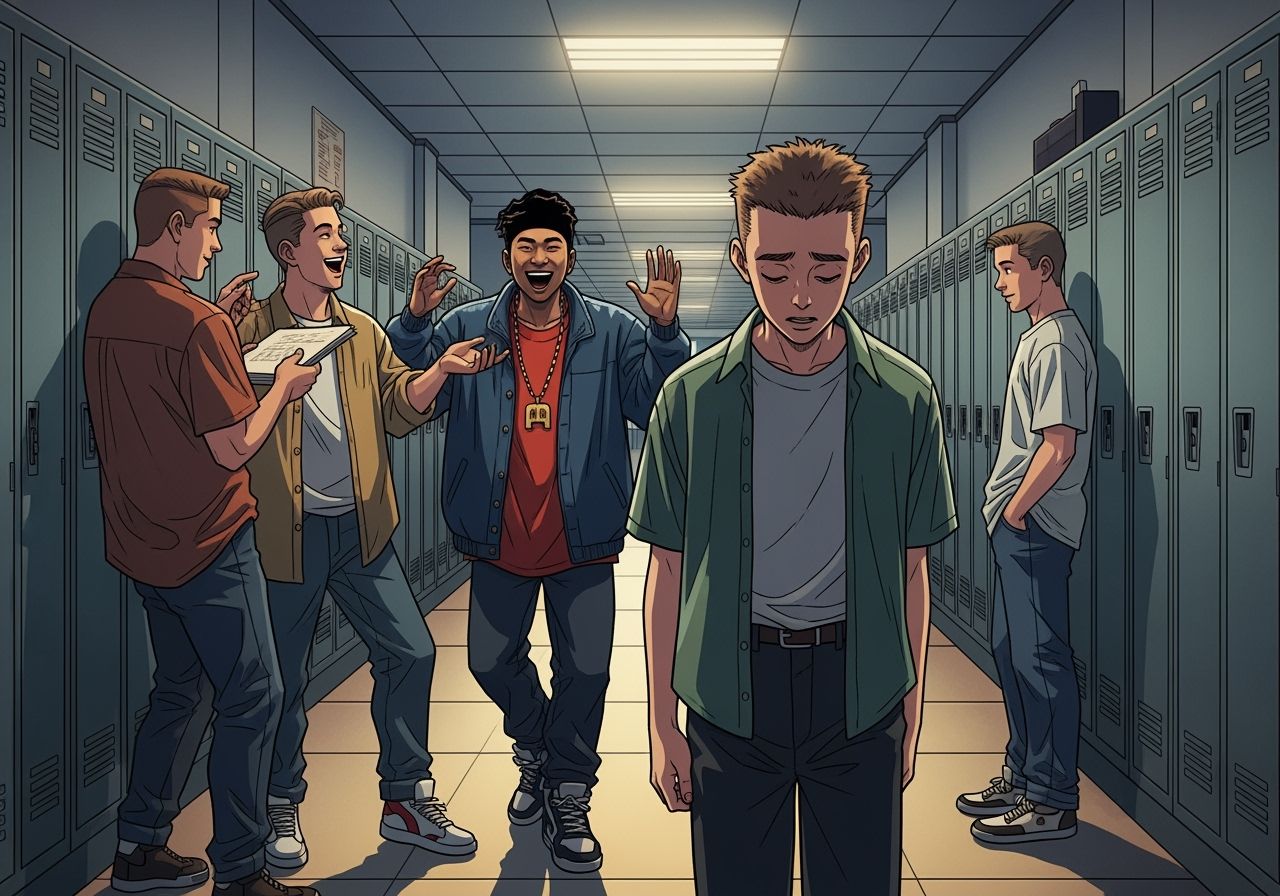 As a high school freshman, my best friend was Hsien Kai [background, laughing]. We played basketball daily, and my dad drove him to school each morning. I'd even visited his parents' restaurant in Chinatown with him. One day at school, he was talking with the "cool" group. When I walked up to say hello, he pretended not to know me. I didn't argue - I just walked away, and our friendship ended abruptly then and there. We haven't spoken since. |
| FABLES, FOLLIES & FAIRYTALES |
MOVIE PITCH & PREFACE :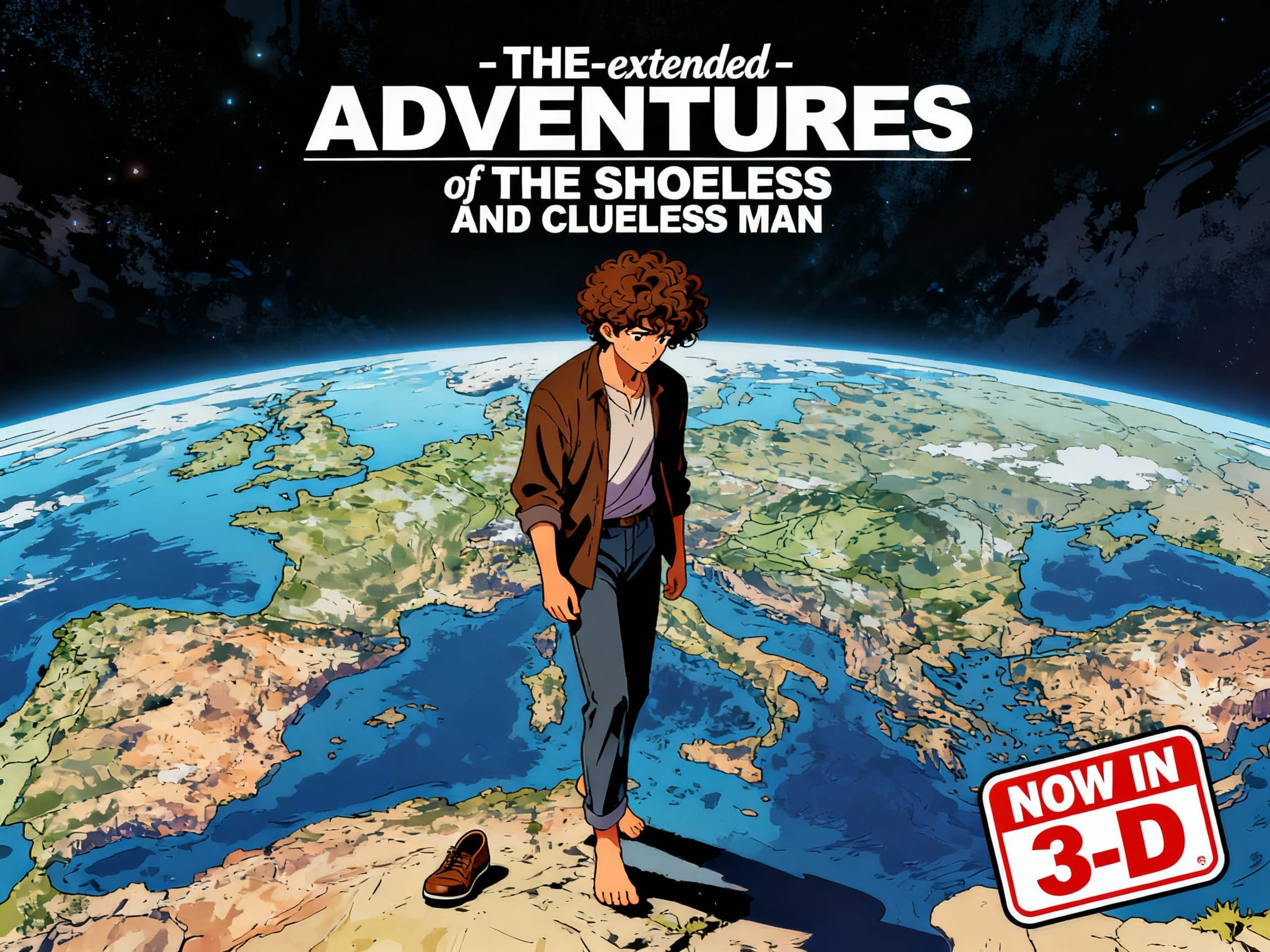 He was shoeless. He was clueless. He roamed and walked the Earth but his shoeless foot ached in the end. Where he was to go, he didn't know for he was clueless. He had neither material nor need. He had no road, no plan and no wish to go for fear he'd have far to walk. But one day, he decided to begin his adventure. He asked himself why he had on only but one shoe. He wondered why it was that he had become clueless. These adventures were his. His first goals were to fit the other foot with a shoe while finding out the reason why this was so important. B[L]EACHED : 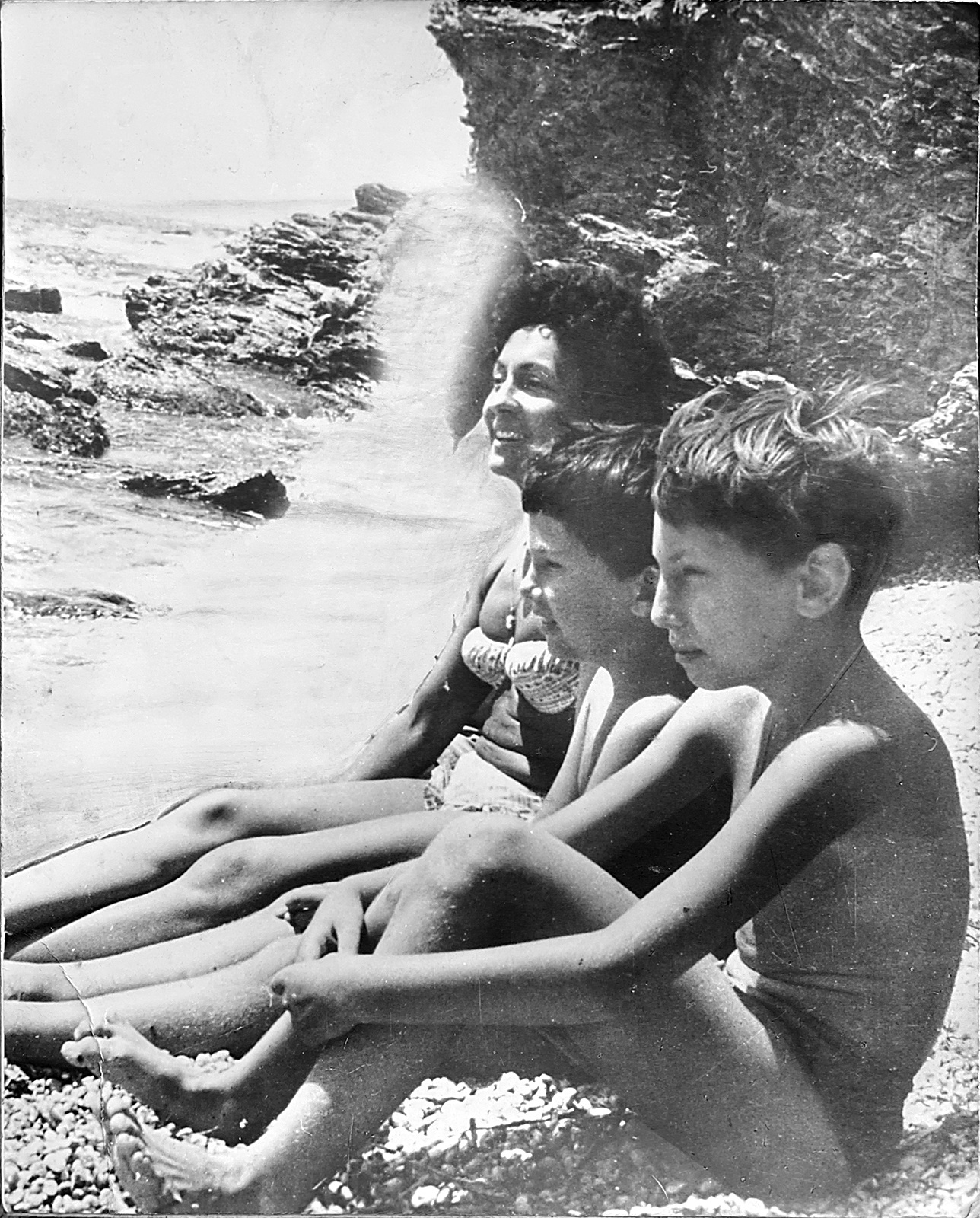 Each picture has a story to tell. This photo of my grandmother, uncle and father, taken on the Catalonian French coast, always hung in her home. It captures a pleasant moment from a family vacation, a tradition of trips to Collioure. My grandpa would sometimes join them from Paris for a week, at which point, the kids would say, "The vacation is over." He wasn't mean but was pretty strict and undemonstrative with his affection. I'd passed this photo numerous times, seeing only a fond souvenir. But a closer look reveals a ghostly sheen to my grandma's right - not a paranormal entity, more of a case of 1960s Photoshop. My grandmother had whited-out her lover. It wasn't out of anger; she had had this image to remember him by, not visually but through the reminiscence of his presence there. He had waited ten years for her, but she ultimately resigned to stay with my grandfather for the kids' sake. He was the love of her life, but now remains a sliver of light beside a mother and her sons at a beach in southern France. |
| EXPRESSIVE RYTHMIC LITERARY ART |
TRUE SONNETEER :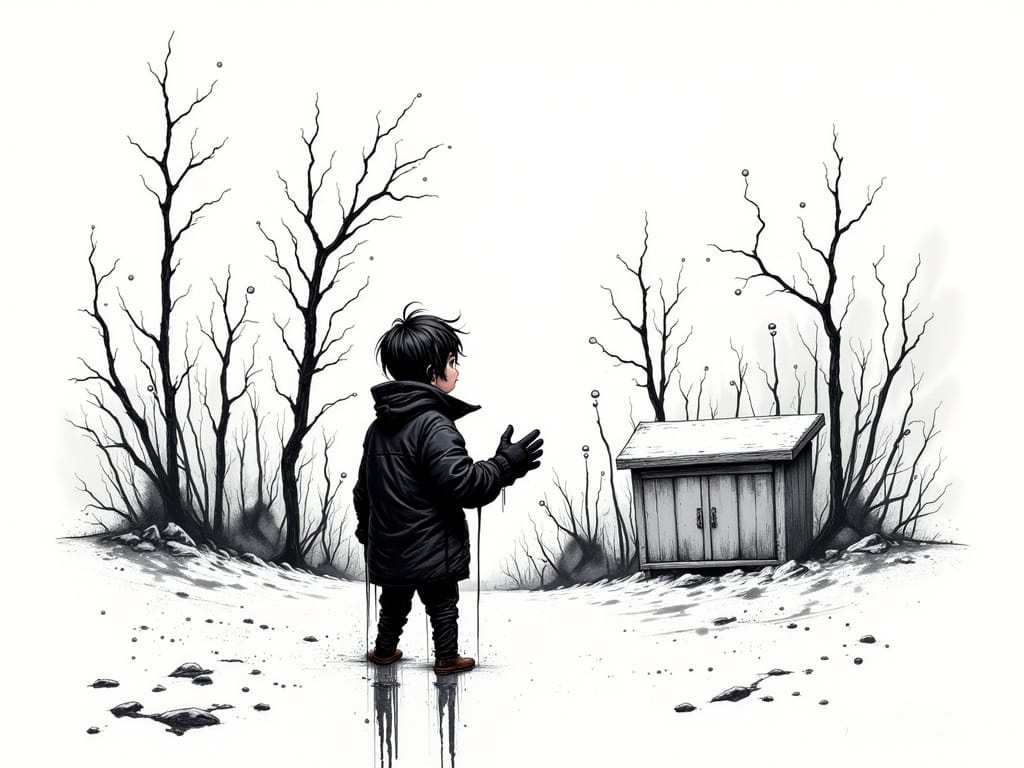 In 4th grade, we were told to write a poem. I submitted this tidbit, thinking myself bold and avant-gardist. The teacher ignored the obscenity and simply noted I should have tried harder. | |
- Jeremy Boissel, c1988 |
TO A MOCKINGBIRD : as the forbidden spawn in dampened gardens, a dark gray shadow contrasts the night, to let out bowels of incandescent light, casting metaphors of wonder and pardon, a figure appears beyond unheard, the united wings of a mocking bird. Boy of the fields, come to the depths, in fame and glory, for search nevermore, drink from clouds and moonlit trees, as wild waters of scurried ease, have rewarded you love and passion, for raise your face towards the skies, to greet your father with opened eyes, find the joy, peace of word, in righteous prayer to a mocking bird. Mere boy, have you no faith, to pose these questions upon him, marquis of putrid magic, creator of ages, bless thy not the beauty of shallow cages, in which you dine through glorious freedom, only despised by essence bestowed unheard, is divinity the worship of a mocking bird? In rage and fury, the boy stands, in these greened fields of his creator, clenched fists in maintained disgrace, as the demerit souls, untamed race, have amended me but heritage of weakness, my spoken creeds of inert justice, seek not my becoming your apprentice, trued be my strength, implied by word, is illusion my sacrilege to a mocking bird? Heathen, impel yourself upon these knees, you have not to rouse uncertainty, your blasphemy and revolted mind, original stout of this condemned kind, raises the hollows but closer and closer, has thesis of this love unheard, shattered the wings of a mocking bird? | |
| - Jeremy Boissel, c2003 |
ON LOVE :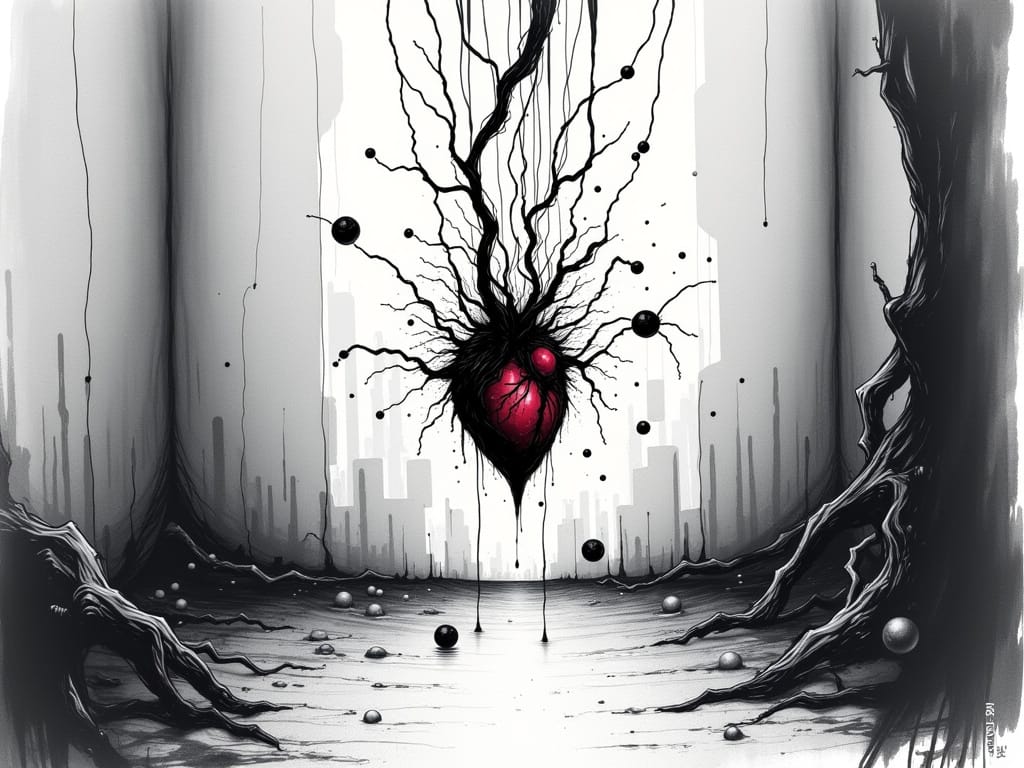 l'amour est quelque chose de merveilleux, si tu l'as Love is a jealous thing, if you want it. l'amour est quelque chose de jaloux, si tu le veux Love is a tender-ous thing, if you see it. l'amour est quelque chose de tendre, si tu le vois Love is a terrible thing, if you lose it. l'amour est quelque chose de terrible, si tu le perds Love is freeing thing, if you seek it. l'amour est quelque chose de libérant, si tu le cherches Love is a mysterious thing, if you know it. l'amour est quelque chose de mystérieux, si tu le connais Love is a trying thing, if you need it. l'amour est quelque chose de fatigant, si tu en as besoin Love is an eternal thing, if you feel it. l'amour est quelque chose d'éternel si tu le sens | |
| - Jeremy Boissel, c2008 |
| PROVERBIAL ADDUCTIONS |
I do not see what I am not and cannot see what I am.
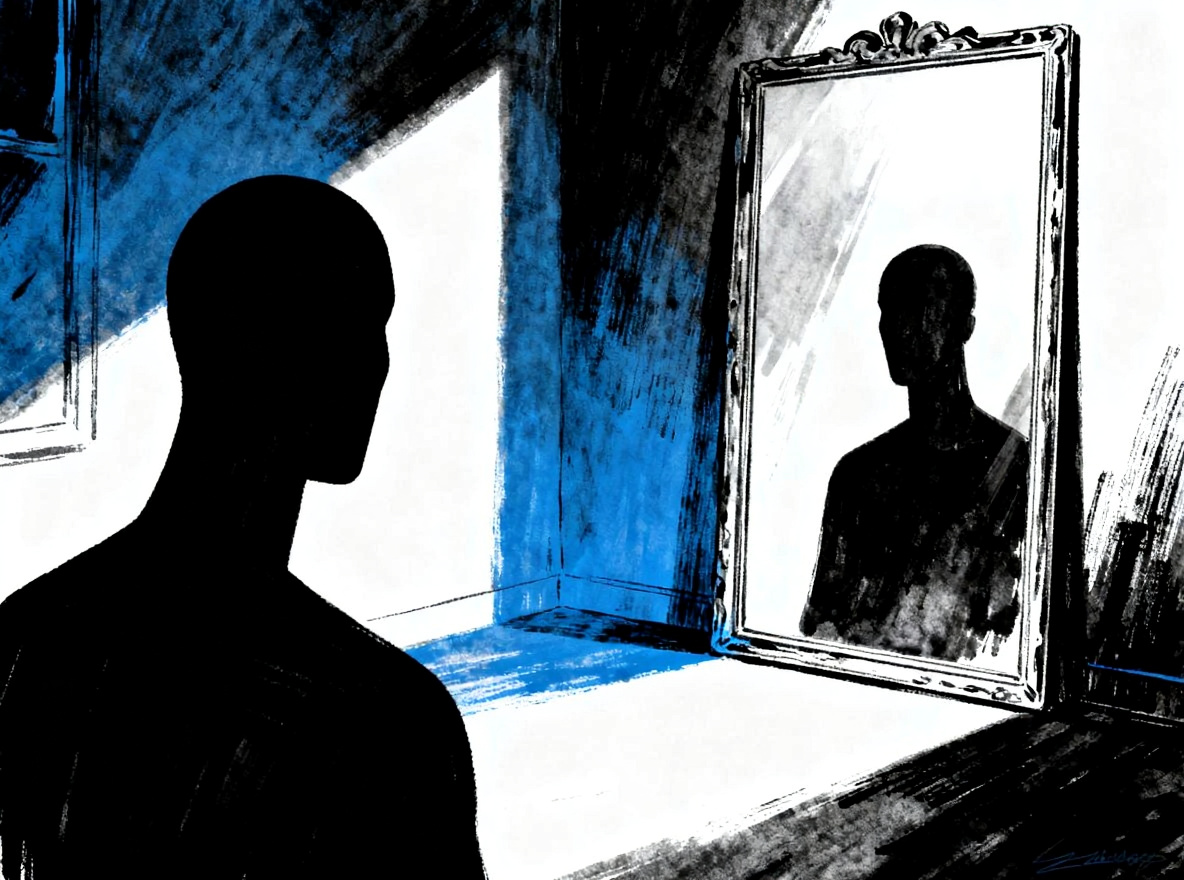 |
| Think of it as being blinded by your own reflection, like looking at yourself in a mirror with all lights turned off. You can never truly perceive who you are. |
It's like pissing into a violin.
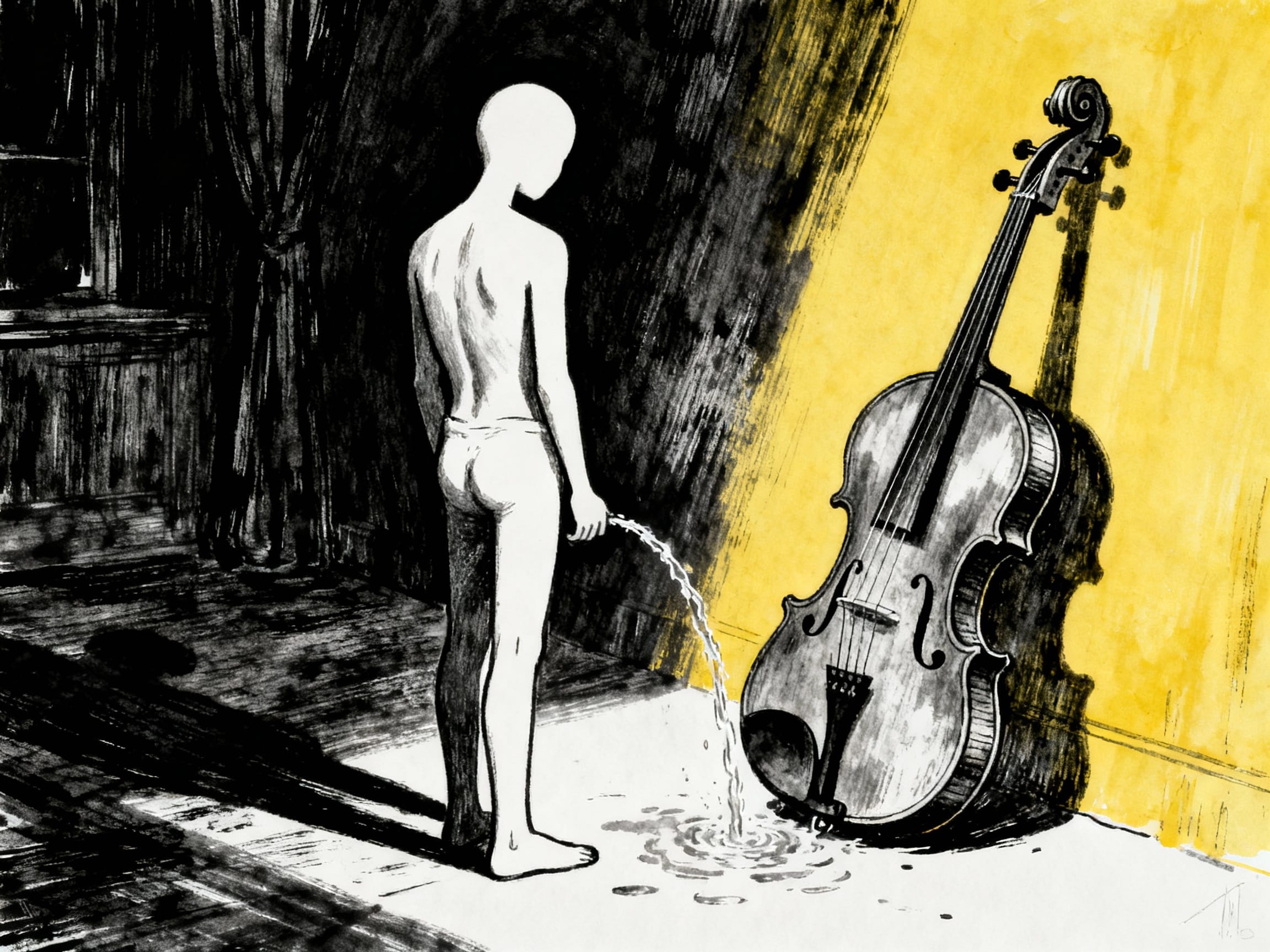 |
| I love translating idioms. People often say, "What the heck does that mean? It makes no sense." In the case of this French saying, "pisser dans un violon," I reply, "Exactly!" |
Sometimes you're the dog, sometimes you're the tree.
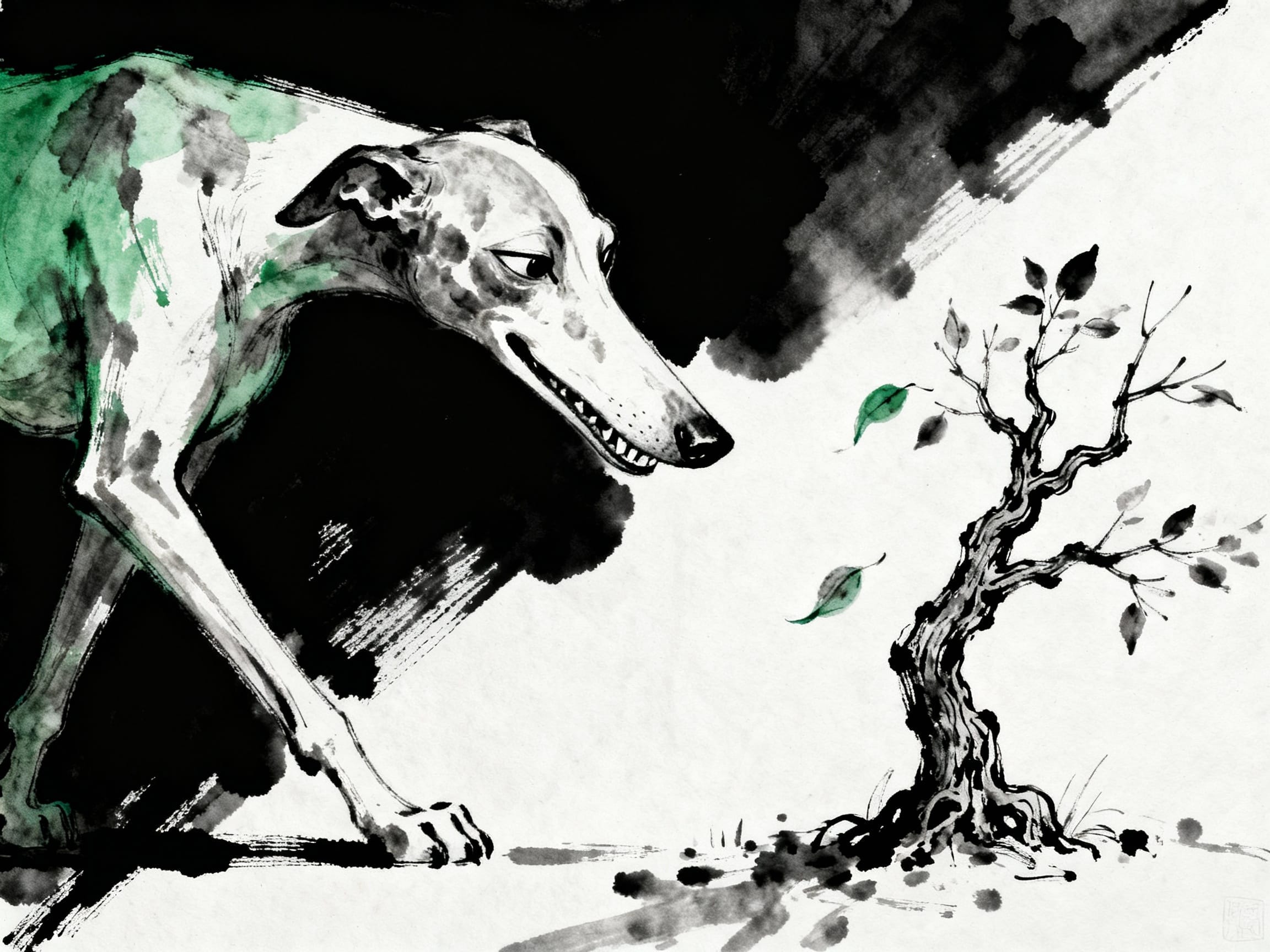 |
| Yet another urinous saying. This one, I believe, is German. Some days you're on top of the world, other times you feel like the universe's personal urinal. |
Only when it is dark enough can you see the stars.
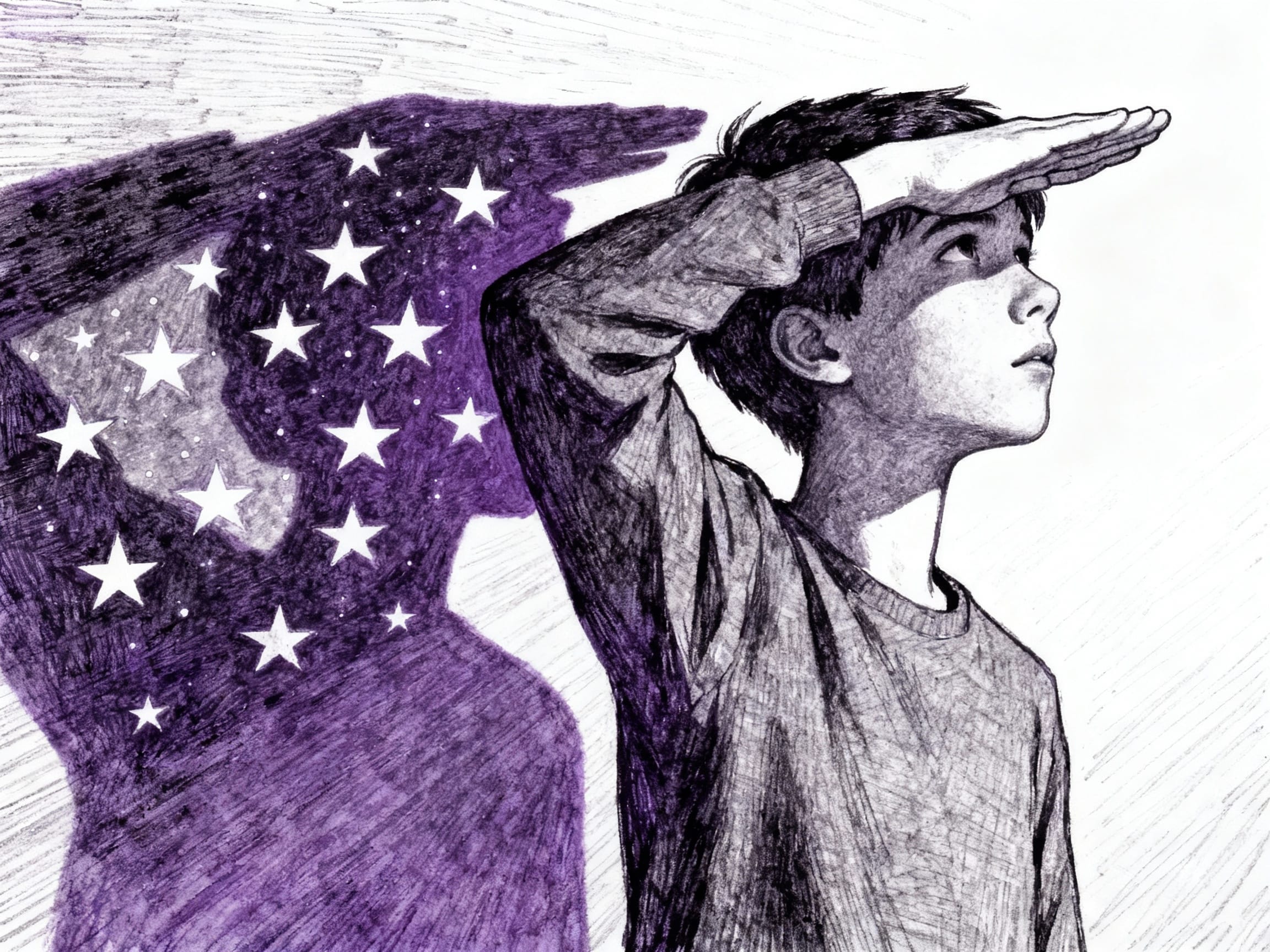 |
| While Martin Luther King Jr.'s quote isn't always true - it can be hard to spot hope when you're battered - from the bottom of the pit, the only way left to go is up. |
The ocean is disgusting; the fish screw in it.
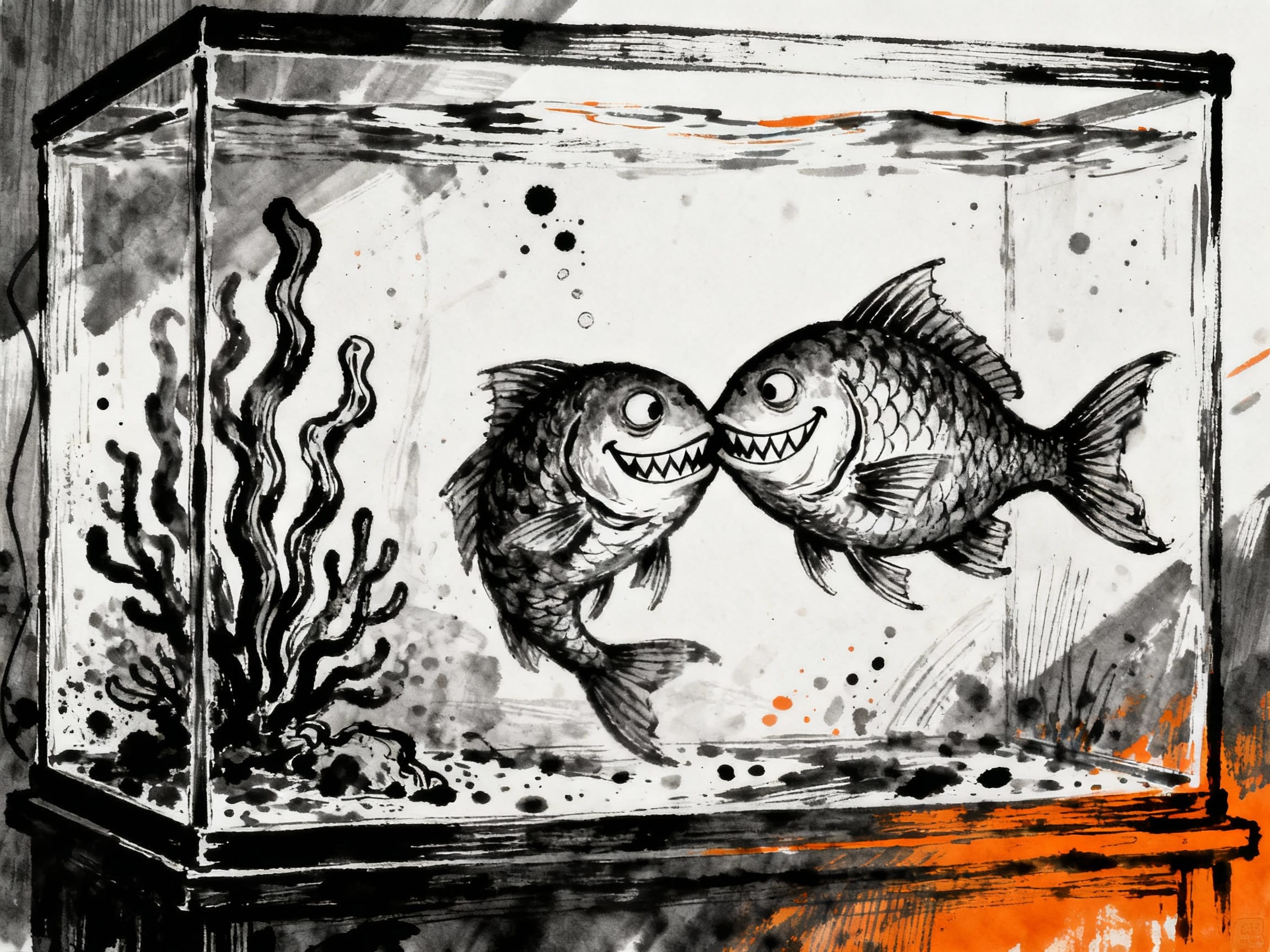 |
| Renaud sang "La mer c'est dégueulasse, les poissons baisent dedans." This humorous line highlights how perspective changes everything. What seems beautiful or right from one viewpoint can appear ugly or wrong from another, reminding us to accommodate for relativity and introspection. |
We've starved ourselves by eating all the menus.
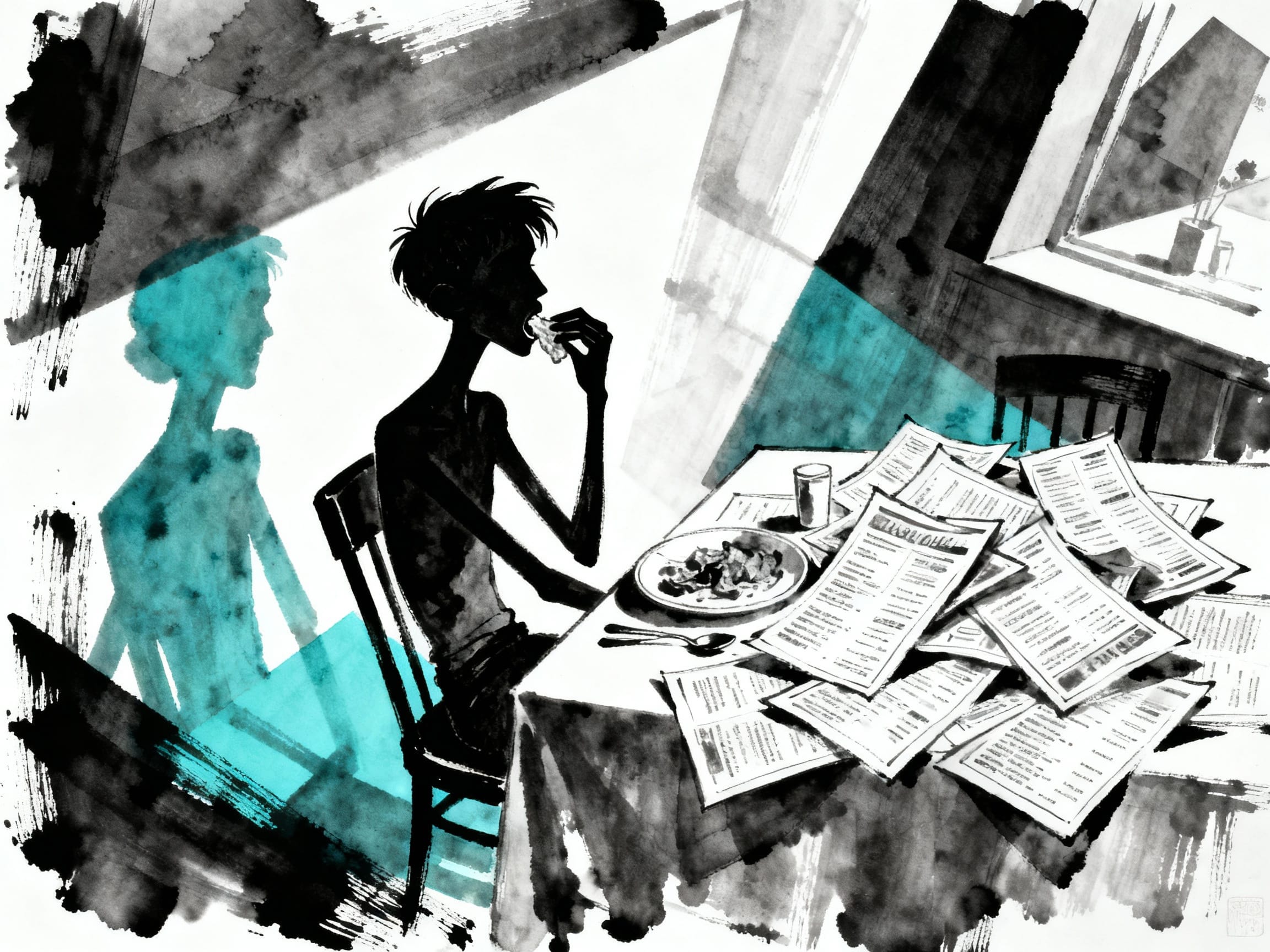 |
| While I'm not sure he was the first, I heard this multi-dimensional idea from Alan Watts. It warns that by feeding ourselves with non-essentials, we consume our own humanity. Simultaneously, if our greed leads us to devour all options, nothing enriching will remain for us or anyone else. |
| RANTS, RAMBLES AND RUMINATIONS |
TIDAL WIN[D]S :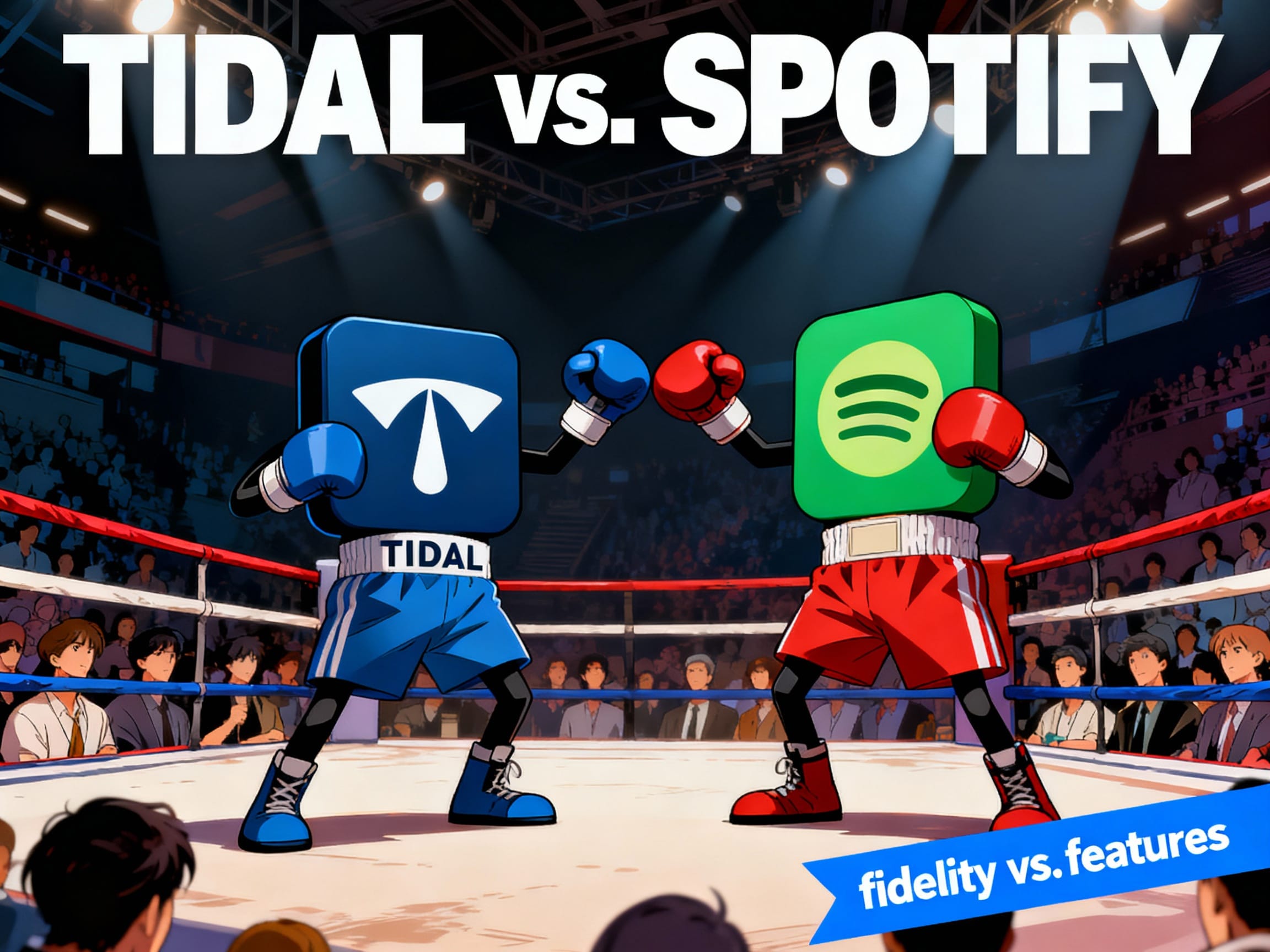 With so many music streaming services available - Spotify, Apple Music, TIDAL, Deezer, Amazon and others - the choice can seem overwhelming. While their prices and core features are largely similar, the critical difference lies not in what you get, but in where your money goes. The most important factor in choosing a service should be how fairly it compensates the artists you listen to. The transition from physical media to streaming was revolutionary. It solved the problems of portability and accessibility, offering vast libraries of over 90 million songs for a flat monthly fee. However, this convenience comes with a hidden cost: A deeply unfair payment system for artists. The common belief is that each stream, each listened song, directly pays the artist. The reality is far more complex and inequitable. A significant portion of your subscription is first taken by the service itself and app store fees. The remainder is split among rights holders, but major labels and distributors take a large cut before it trickles down to the artists. Furthermore, services like Spotify strike better deals with major pop stars, leaving smaller, independent artists with minuscule payments. Ultimately, the real total payout for artists might be of only about $0.50 from your $10 monthly subscription. This injustice is exacerbated by platforms prioritizing non-music content. Spotify's landmark $200 million deal with podcaster Joe Rogan is a prime example. This money is diverted away from the music ecosystem, effectively forcing music subscribers to fund exclusive podcasts they may not want. This highlights a shift away from an artist-centric model. Moreover, there's Spotify's dilution of revenue through its aggressive promotion of a free, ad-supported tier; while Spotify claims the "freemium" model is funded by advertising, the revenue generated from ads is insufficient to cover the full cost, meaning paying subscribers effectively subsidize the free users (hence the many commercials for Spotify within Spotify). This strategy also artificially inflates Spotify's user numbers to strengthen its market leverage, but it ultimately waters down the per-stream revenue pool, ensuring that even with a massive user base, the average royalties to artists remain dismally low. Therefore, if the services are functionally similar, why not choose the one that pays artists the most? The numbers are revealing. To earn $100, an artist needs: · TIDAL: 7,800 streams · Apple Music: 12,500 streams · Spotify: 31,400 streams · YouTube Music: 50,000 streams An artist must be streamed four times more on Spotify than on TIDAL to earn the same amount. Compared to buying a $15 CD, you would need to listen to an album over 16 times on TIDAL for the artist to receive equivalent royalties. On Spotify, you would need to listen to it 66 times. The choice is clear. By switching to a service like TIDAL, which promotes better artist payouts, you directly support the creators you love without sacrificing quality or library size. As consumers, we are responsible for the economic systems we support. Choosing a fairer platform is a powerful way to ensure artists receive the compensation they deserve. | |
| - Jeremy Boissel, c2022 | |
| note: based on 2022 approximations; figures are outdated but the underlying trends remain accurate in 2025 |
| CURATED PERMANENT EXHIBIT |
| © 2025 ALL MA MF' RIGHTS RESERVED |